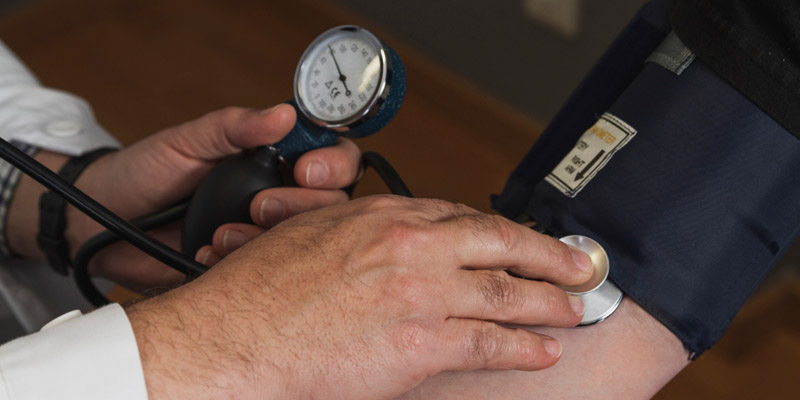
In today’s fast-paced world, high blood pressure, or hypertension, has become a common health issue affecting millions of people worldwide. While there are various conventional treatments available, many individuals are seeking natural alternatives to manage their high BP. Ayurveda, an ancient Indian holistic healing system, offers a comprehensive approach to addressing hypertension by focusing on lifestyle modifications, dietary changes, herbal remedies, and stress management techniques. In this article, we will explore the principles of Ayurveda and discuss natural treatments and remedies for high BP.
Understanding High Blood Pressure

What is high BP?
High BP, or hypertension, occurs when the force of blood against the artery walls is consistently too high. It is often referred to as a “silent killer” because it can go unnoticed for years while causing damage to vital organs such as the heart, kidneys, and blood vessels.
Causes and risk factors
Several factors contribute to the development of high blood pressure, including genetics, age, lifestyle choices, and underlying medical conditions. Some common risk factors include a sedentary lifestyle, unhealthy diet, obesity, smoking, excessive alcohol consumption, and chronic stress.
Ayurvedic Perspective on High BP

Doshas and BP
According to Ayurveda, high BP is primarily associated with an imbalance in the Pitta and Vata doshas. Pitta represents the fire and water elements, while Vata represents the air and ether elements. Imbalances in these doshas can lead to increased blood pressure.
Imbalance and its Impact on BP
Excessive intake of pungent, salty, and sour foods can aggravate Pitta, leading to increased blood pressure. Similarly, imbalanced Vata dosha can disrupt the natural flow of blood and cause hypertension. Ayurveda focuses on restoring the balance of these doshas through lifestyle modifications and herbal remedies.
Lifestyle Modifications for High Blood Pressure
Diet and nutrition
A heart-healthy diet plays a crucial role in managing high blood pressure. Ayurveda recommends consuming fresh, whole foods that are easy to digest. Include a variety of fruits, vegetables, whole grains, lean proteins, and healthy fats in your diet. Avoid processed foods, excessive salt, caffeine, and alcohol.
Exercise and physical activity
Regular exercise helps improve cardiovascular health and regulate blood pressure. Engage in moderate exercises such as brisk walking, swimming, or cycling for at least 30 minutes a day. Yoga and meditation are also beneficial for reducing stress and promoting relaxation.
Stress management and relaxation techniques
Chronic stress contributes to high blood pressure. Ayurveda emphasizes the importance of stress management techniques like deep breathing exercises, mindfulness meditation, and practicing self-care activities such as oil massages and warm baths.
Ayurvedic Natural Remedies for High BP

Ashwagandha
Ashwagandha, also known as Indian ginseng, is an apoptogenic herb known for its ability to reduce stress and anxiety. It helps relax blood vessels and promote healthy blood flow, thus assisting in maintaining normal blood pressure levels.
Brahmi
Brahmi, a herb known for its cognitive-enhancing properties, also supports heart health. It aids in reducing hypertension by calming the mind, enhancing mental clarity, and improving overall blood circulation.
Arjuna
Arjuna, derived from the bark of the Arjuna tree, has been used in Ayurveda to support heart health for centuries. It helps strengthen the cardiovascular system, regulate blood pressure, and improve heart function.
Triphala
Triphala, a combination of three fruits, is a powerful Ayurvedic remedy for various health conditions, including high blood pressure. It promotes digestion, detoxification, and overall well-being, indirectly contributing to maintaining healthy blood pressure levels.
Ayurvedic Therapies for High Blood Pressure
Abhyanga (Ayurvedic massage)
Abhyanga is a therapeutic Ayurvedic massage using warm herbal oils. It helps reduce stress, improve blood circulation, and relax the body and mind. Regular abhyanga can be beneficial in managing high blood pressure.
Shirodhara (oil pouring therapy)
Shirodhara involves pouring a continuous stream of warm oil onto the forehead. This therapy induces a deep state of relaxation, calms the nervous system, and supports overall well-being, including blood pressure regulation.
Nasya (nasal administration)
Nasya involves the administration of herbal oils or powders into the nasal passages. This Ayurvedic therapy helps clear the respiratory system, improve oxygenation, and balance the doshas, which can contribute to maintaining healthy blood pressure.
Conclusion
Ayurveda offers a holistic approach to managing high BP by addressing the underlying imbalances in the body and mind. By adopting Ayurvedic lifestyle modifications, incorporating Natural remedies, and exploring Ayurvedic therapies, you can complement conventional treatments and support healthy BP levels. However, it is important to remember that Ayurveda should be used as a complementary approach and not a substitute for medical advice or prescribed medications.
FAQs
Can Ayurveda cure high BP completely?
Ayurveda aims to balance the body and promote overall well-being, including BP regulation. However, it is important to consult with a healthcare professional for an accurate diagnosis and appropriate treatment plan.
Are Ayurvedic Natural Remedies For High BP safe to use alongside prescribed medications?
Ayurvedic Natural Remedies For High BP should be used under the guidance of a qualified Ayurvedic practitioner and in coordination with your healthcare provider to ensure safety and avoid potential interactions.
How long does it take to see results with Ayurvedic treatments for high BP?
The time to see results may vary depending on individual factors, the severity of the condition, and adherence to Ayurvedic recommendations. It is advisable to have realistic expectations and follow the treatment plan for high BP consistently.
Are there any dietary restrictions to follow in Ayurveda for high blood pressure?
Ayurveda recommends avoiding processed foods, excessive salt, caffeine, and alcohol. It emphasizes a whole-foods-based diet that is easy to digest and supports overall health.




